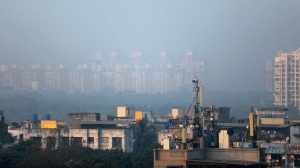Rational Expectations
Governance and total informationIt was thanks to a television network that we first got to know that the Punjab government was using one ...

Governance and total information
It was thanks to a television network that we first got to know that the Punjab government was using one of its buildings as collateral to raise a loan to pay part of the salaries of its employees. And it was thanks to a newspaper that we got to know that Punjab may not be able to fulfill the conditions it had agreed to abide with, such as raising more revenues through cutting its huge subsidy bill, when it took an advance loan from the Centre six months ago.
While breaking news is clearly what news agencies are all about, it is shocking that none of the authorities should even consider it its duty to make public such vital information. Sure, they don8217;t have to make such matters public as soon as they happen, or are about to happen, but surely putting out updated data on a regular basis is critical. Critical not just for the country8217;s citizens who wish to know the state of things, but also for investors for taking decisions like, say, locating their newplants.
Let8217;s go back to the Punjab case. Forget the current crisis for a moment. The fact is that, for several years now, Punjab8217;s fiscal health has been precarious, with the state continuously borrowing to meet its revenue expenditure, instead of meeting revenue needs from revenue raised from taxes and other user-charges such as those on irrigation and electricity. But the investor, or economist, who sees the figures published in the Reserve Bank of India8217;s annual report or its currency and finance report will get the feeling that there8217;s been a sharp turnaround. Simply because the RBI data made available to us in 1999, uses the budget estimates for 1998-99.
Obviously the relevant figures would be the revised estimates for 1998-99, but the RBI has not given that. Conveniently, for not just Punjab but all the states, the RBI chooses to publish its statistics a couple of months before the actual budget numbers are made public. Which ensures that investors cannot even have an early warning on whatdisaster awaits them in different states surely a broke Punjab is not in a position to, for example, honour its promises to set up more electricity generation facilities for new industrial units.
Nor can you blame just the RBI for this lapse. The Planning Commission, for example, has access to all such data for each state, but refuses to make it public. Surely it should be made part of the Commission8217;s duty to publish quarterly bulletins on the health of various state governments and of bodies such as the state electricity boards. Apart from the obvious benefits that this will give to investors, it will also make it difficult for politicians to keep asking for doles if regular information is made available on how they8217;re squandering the resources made available to them.
Did you know, for example, that it is not just inefficiency which ensures that projects never seem to get completed in India? One of the reasons is the complex accounting system followed in the budgetary and planning process. Under therules, till a project is complete, all expenses on it are treated as plan8217; expenditure. So if a school has one room less, but begins to function, all expenses such as teachers8217; salaries are plan8217; expenditure.
The moment the school is completed, the teachers8217; salaries are non-plan8217; expenditure. Since the first expenses to get the axe are non-plan8217;, it makes sense for states never to complete8217; their projects. Now surely it8217;s only fair to expect the Planning Commission to come out with this sort of information on a regular basis, to give details on which states are the biggest culprits and how serious the implications of this are.
Nor is such lack of current information restricted to the state governments alone. Despite repeated pleas by investor and consumer groups, the RBI does not provide any list on regular defaulters corporate and individual who do not repay their loans or the interest on them. There is no list available on an aggregated basis, of those individuals/corporates whose cheques havebounced, or who have not paid back their credit card firms. Certainly the track record of promoters and promoter firms is still not made public. So when they go to the market to raise funds no one will be any the wiser as to their dubious past it didn8217;t matter for the past few years since investors weren8217;t investing, but now that sentiments have revived, you can be sure lakhs of investors will be made suckers all over again.
The RBI8217;s reasons, and that of the banks or the credit card firms, for not making such lists public are well-known. As they are not obliged to make this information public by law, they will be sued by these individuals or corporates. And in the absence of such a compulsion, corporates/individuals will take their business to other banks or credit card companies if such information is made public by one particular bank or credit card firm. Fair enough. But why not make such disclosures mandatory?
The reason why this has not been done is that these very individuals and corporates don8217;twant it to be done. They don8217;t want the average citizen they lord over to know that they haven8217;t repaid their loans or outstanding bills. Just as the politician doesn8217;t want the precarious financial situation of his state to be public knowledge. The Vajpayee government would do well to make a start in legislating this as part of a Right to Information Act. What8217;s best, unlike a hike in LPG or diesel prices, this will be a reforms step that the common man will not even object to.
- 0110 hours ago
- 0219 hours ago
- 0310 hours ago
- 0411 hours ago
- 056 hours ago































